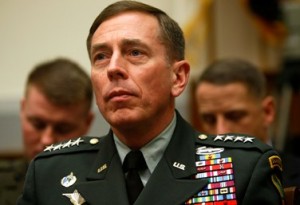Thursday
Jul292010
Afghanistan: After the Wikileaks "Petraeus to Stop Corruption" (Partlow)
 Thursday, July 29, 2010 at 8:43
Thursday, July 29, 2010 at 8:43  We've had the first phase of stories following the appearance of the 91,000 Wikileaks documents: hostility to US troops amongst villagers, even when they hate Taliban; claims of support by Pakistani intelligence services and military for Afghan insurgents; claims of support by Iran for the insurgents (countered by some analysts); revelations that some of those fighting US and NATO forces are coming in from Turkey, a member of NATO; the far-from-surprising news that the US media has been paying Afghan media to run "friendly" stories; the assertion of financial and political misdeeds by Afghan officials
We've had the first phase of stories following the appearance of the 91,000 Wikileaks documents: hostility to US troops amongst villagers, even when they hate Taliban; claims of support by Pakistani intelligence services and military for Afghan insurgents; claims of support by Iran for the insurgents (countered by some analysts); revelations that some of those fighting US and NATO forces are coming in from Turkey, a member of NATO; the far-from-surprising news that the US media has been paying Afghan media to run "friendly" stories; the assertion of financial and political misdeeds by Afghan officialsNow the next phase: the US military trying to walk hand-in-hand with the media to counter a damaging story. Although Joshua Partlow of The Washington Post may have been developing this piece before the arrival of the Wikileaks documents, the timing of its appearance is more than a little interesting.
Afghanistan: What Did Wikileaks Reveal? What I Wrote in Kabul in 2005 (Shahryar)
Afghanistan: Why Wikileaks Should Not Be Plugged (Dissected News)
But there is a question, unasked in the article: since the media has featured for years the assurances of US military and politicians that they are combating corruption in Afghanistan with the outcome of "good governance", what makes this good-news prediction of an article --- even if it is headlined by the name "Petraeus" --- any different?
Partlow's article:
Every day, Gen. David H. Petraeus meets with senior NATO officials at headquarters for a 7:30 a.m. update, and at nearly every session, he returns to an issue that has bedeviled the U.S. campaign for years: Afghan corruption.
In his first month on the job, Petraeus has intensified efforts to uncover the scope and mechanics of the pervasive theft, graft and bribery in the Afghan government, examine U.S. contracting practices, and assist Afghan authorities in arresting and convicting corrupt bureaucrats, according to U.S. and NATO officials.
"It is his drumbeat that he started on Day One," said a NATO military official who participates in the morning "stand-up" meeting. Petraeus sees corruption "as an enemy. It is counter to our strategy. And it is readily apparent to me . . . there is a new sense of urgency."
The issue was also a central concern for Petraeus's predecessor, Gen. Stanley A. McChrystal, as the U.S. military has come to realize that its counterinsurgency goals depend on fighting corruption. NATO surveys have found that anger at corruption is the top reason Afghans support the Taliban over the government.
From police shakedowns to profits from drug trafficking, NATO officials put the yearly price tag of corruption and black-market business at $12.3 billion, just shy of Afghanistan's gross domestic product. Citing U.N. statistics, they estimate that about half of that comes from the smuggling industry and illicit taxes levied on trucks crisscrossing the country. About $2.5 billion is paid in bribes each year, stolen Afghan government revenue tops $1 billion, and billions more is pilfered from foreign aid and NATO contracts, according to a briefing prepared by NATO's anti-corruption task force.
"It has progressively gotten worse. It's at all levels," said one senior NATO official who works on corruption issues. Reversing the situation is "a moral imperative, and it's an operational imperative."
The NATO officials spoke on the condition of anonymity because of the sensitivity of the issue.
Turning up the pressure
Petraeus has asked his subordinates to brief him more often on progress on this front -- twice a week, instead of once -- and is considering naming a one-star general to oversee anti-corruption work. In his first three weeks in Afghanistan, Petraeus has met with President Hamid Karzai at least 20 times, and corruption has been a regular topic of discussion, the NATO officials said.
In addition to fielding two new teams in Afghanistan to study how American money is spent through reconstruction and security contracts, the U.S. Embassy in Kabul is preparing a proposal that would require the Afghan government to meet anti-corruption benchmarks to receive U.S. funds.
"We expect they will live up to their commitments, and we will give them incentives to live up to their commitments," a Western diplomat said.
Read rest of article....

Reader Comments